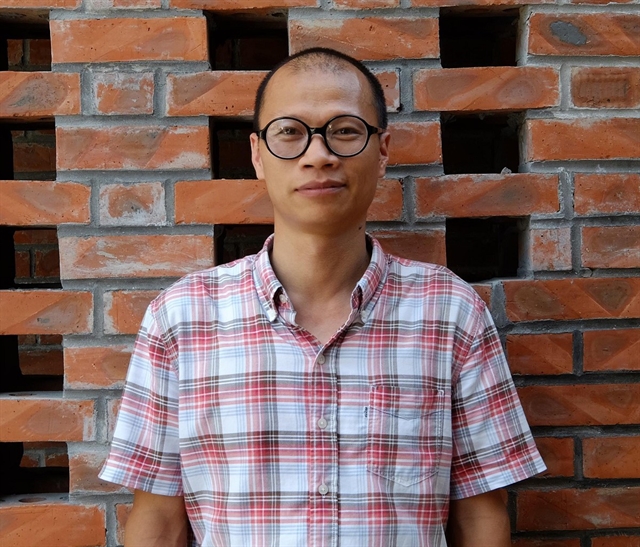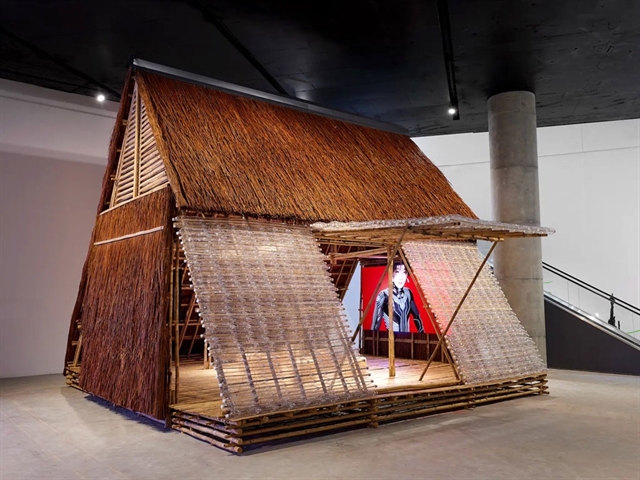 Life & Style
Life & Style

 |
| Architect Đoàn Thanh Hà. Photo kienviet.net |
Architect Đoàn Thanh Hà is displaying his work Floating Bamboo House at the Cloud Walkers exhibition by Leeum Museum of Art in South Korea. The exhibition runs until January 8, 2023.
During his career, Hà has received around 30 national and international awards, including the 2018 2A Continental Architectural Award and the 2018 Red Dot Award. Hà spoke about his work and the exhibition.
What can you tell us about the exhibition?
The “cloud” here speaks about climate, imagination, and hyperlinks alike. It stands as a metaphor for the new sociocultural environment of the 21st century and serves as a virtual platform for sharing across geopolitical boundaries.
The work in this exhibition are by those who move freely through this cloud world - the walkers and wanderers, workers and doers, dreamers and visionaries.
Coming from a wide range of backgrounds, these artists bring new and critical perspectives to the issues faced by our contemporary - and future - society.
How did you get chosen for this exhibition?
When I was Seoul, the museum's senior curator Jun Young Kwak told me the reason I was invited to take part the exhibition. My another work entitled Blooming Bamboo Home impressed her. She also read the book Who Is The Architect published in South Korea in 2014 which introduced my work and my point of view.
We discussed a lot and finally decided that I should use bamboo for the architecture. The Floating Bamboo House is installed in a quite large space compared to other works at the exhibition. It is sized at 6m by 6m by 5.3m.
I set up it in Hà Nội's Quốc Oai District in May and then disassembled it to transport to South Korea. By the end of July our group including three architects and one engineer came to the museum and installed the house within six days.
When did you begin to design the floating house?
I designed a floating bamboo house for people living in Mekong River Delta in 2015. The structure was framed using the bamboo standard sizes 3m by 6m, and it was enveloped with grass and plastic bottles.
Its design was inspired by rông house - a Central Highlands typical communal house.
I wanted to create a minimal structure that can be used by people living near rivers with a variety of functions. I made another floating bamboo house for people in Hà Nội's Phú Xuyên District. The two models are designed with the same minimal structure.
 |
| Floating bamboo house model by Đoàn Thanh Hà. Photo coutersy of Leeum Museum of Art |
What do you hope to achieve through this design?
I think that architecture in tropical areas should be immersed in nature. Architecture should be responsible for the natural environment and the socio-cultural environment.
If we exploit natural resources or destroy nature we need to have strategies to overcome this situation as well.
In the world, there are already technological lines that turn plastic waste into plastic blocks for construction without first sorting or cleaning the garbage.
Such solutions applied in practice will gradually backfire to adjust the behaviour and aesthetic habits of the people in a direction that is beneficial to nature and also their living environment in the future.
The floating house model can be built with environment friendly and reusable materials.
In your career, you have designed buildings and carried out projects for people who live in flood-prone areas. What do you think of the 'human-centred architecture'?
Architecture only becomes true architecture when it has its own life and lives in a close relationship between people, the natural environment and social environment. Architecture contains in it both art and science.
An architectural work always needs to reflect today's social reality, even architecture needs to be one step ahead and positively impact to improve that reality.
Ancient Vietnamese architecture, although differs in function, people and scale, but it is similar in structure and expression. This makes me to design floating houses with multi-functional minimal structure.
I always find abundant inspiration to have architectural design from life. I also don't remember exactly when I formed this my point. Maybe it comes naturally to me like breathing.
Effective use of local available materials surely then the architecture will have its own characteristics. It helps me to pursuit my goal in my career. I like materials which are primitive like trees and soil. They are common to all cultures but are very different. VNS




